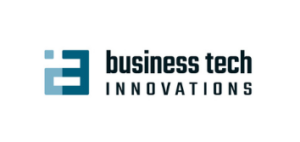
Blockchain technology, once synonymous with cryptocurrencies, has transcended its initial association to revolutionize various industries. While cryptocurrencies like Bitcoin introduced the world to blockchain, the underlying technology has far-reaching applications that extend well beyond digital coins. In this article, we’ll explore the fundamentals of blockchain and its diverse use cases across different sectors.
The Essence of Blockchain
At its core, blockchain is a decentralized and distributed digital ledger. It records transactions in a way that ensures transparency, security, and immutability. Unlike traditional centralized databases, blockchain operates through a network of computers (nodes), each holding a copy of the entire ledger. This decentralized nature eliminates the need for intermediaries, reduces the risk of tampering, and enhances trust among participants.
7 Blockchain Applications Beyond Cryptocurrency
1. Supply Chain Management
Blockchain offers a transparent and tamper-resistant way to track goods across complex supply chains. From raw material sourcing to the final product, each step can be recorded on the blockchain. This ensures authenticity, prevents counterfeiting, and enhances traceability. Consumers can verify the origin and journey of products, fostering greater trust in brands.
2. Healthcare and Medical Records
Managing medical records can be a cumbersome process involving various stakeholders. Blockchain can streamline this by providing a secure platform for storing and sharing patient data. Medical records stored on a blockchain can be accessed only with the patient’s consent, ensuring privacy while enabling quick and accurate data exchange among authorized healthcare providers.
3. Identity Management
The traditional approach to identity management often involves multiple usernames and passwords, leading to security vulnerabilities. Blockchain can create a decentralized digital identity that users control. This eliminates the need for intermediaries to verify identities, enhancing security and reducing the risk of identity theft.
4. Real Estate Transactions
Real estate transactions involve multiple parties, paperwork, and intermediaries. Blockchain can simplify this process by digitizing property titles, contracts, and transactions. Smart contracts, self-executing contracts with predefined rules, can automate processes, ensuring transparency and reducing fraud in property transactions.

5. Voting Systems
Elections can benefit from blockchain’s transparency and security. By recording votes on a blockchain, the integrity of the electoral process can be upheld, preventing manipulation and ensuring accurate vote counting. This can enhance trust in democratic systems.
6. Intellectual Property Protection
Artists, creators, and innovators often struggle with piracy and copyright infringement. Blockchain can create a timestamped and immutable record of intellectual property ownership. This can help establish a clear chain of ownership, making it easier to prove authorship and protect creative works.
7. Financial Services
Beyond cryptocurrencies, blockchain can revolutionize financial services. It can facilitate faster and more secure cross-border payments, streamline trade finance processes, and enable the creation of digital assets representing real-world assets like real estate or commodities.
Embracing a Decentralized Future
While cryptocurrencies brought blockchain into the spotlight, the technology’s potential reaches far beyond digital coins. Its decentralized, transparent, and secure nature has led to innovative solutions across various industries. From supply chain transparency to healthcare data management and beyond, blockchain is reshaping traditional processes, enhancing security, and fostering trust. As we continue to explore and harness its capabilities, the impact of blockchain on our daily lives is only beginning to unfold.




